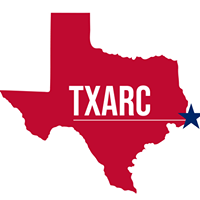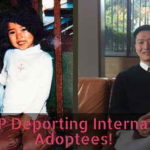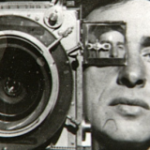By Jessica Branch
Do adopted children have the right to know about their birth parents?
Do you have a right to find your mother? Does she have the right to stop you? As courts and legislatures debate whether adoptees should have full access to their birth records, some birth mothers and children are pleading very different cases from opposite sides of the family divide.
| “I have a right to know.” | “I have a right to my privacy.” |
|---|---|
| Shanna Wells, 21, of Font Smith, Arkansas, plans to study law. She was adopted at 22 days old and is seeking her birth parents.“I’ve always known I was adopted, and I’ve always wanted to know where I came from. Who gave me my naturally curly hair and other characteristics and little quirks? How did my parents meet? Basic things most people wonder about their families, the difference being that they can ask, and I’ve never been able to.
“When I turned 18, I started searching for answers. All I’ve managed to find out is my birth name- Christina Marie White– and that I was born in Little Rock, Arkansas. I’ve pored over yearbooks from before I was born, looking for a face similar to mine. I’ve spent weekends in Little Rock going through phone directories, calling people named White. I’ve e-mailed total strangers, saying, ‘Hey, this is probably not you, but…’ And my name is plastered all over the Internet. “In December, I got a call from a lady who said, ‘Hi, Shanna, this is your mom.’ We talked for hours. But ultimately we learned that she’s not my mom, after all. I was disappointed but not surprised. She’d only been searching for two days; I’d been looking for three years. Why should it be so easy? “I feel like I’ve searched all I can with the information I have, so now I’m fighting for open-records legislation. With the help ofBastard Nation, a national adoptees’ rights group, I organized a Rush for the Records rally at the county courthouse in Fort Smith. We walked in and said, ‘We want our records’ (knowing full well we wouldn’t get them). We had to leave, but people on the street were really interested. They’d assumed you could just see your records when you turned 18. Point me to that line! “I have nothing but love for my adopted family and they know that and support my search. I’d understand if, once I found her, my birth mother didn’t want me in her life– I don’t want to break up anyone’s marriage or be a nuisance. What I’m after is a medical history, and then … not exactly an explanation–that sounds too harsh–but an idea of what kind of life my birth parents have had. Because everyone has a right to know where they came from, a right to know who brought them into this world.” |
To maintain her anonymity, this birth mother asked that Glamour not print any identifying information about her or her birth child.“I gave my baby up about 20 years ago, when I was in my twenties. I was single, I was in college, I was pregnant and I didn’t want to be. Marriage was out– the father and I didn’t love each other. I’d always been opposed to abortion, but when you’re desperate, it can seem like an option. I thought long and hard, and with the help of counseling, I decided that adoption would be best for my child. I don’t know what I would have done if I hadn’t believed that my identity would always be confidential. It was a large part of the reason I opted for adoption.
“In the hospital, someone said it might be better if I never saw my newborn, but I insisted and spent three wonderful, bittersweet days with my baby. The hardest thing I ever did was to put my child down and say goodbye. It’s haunting, knowing your kid’s out there, but time heals all wounds. I finished school, became a professional and got married. “Now a few states are trying to change the rules so that adoptees can find their records [and track down their parents], and I think that’s wrong. Changing the law now is going back on a promise that was made to me. My spouse knows about the adop tion and is understanding, but most people in my life, including my other children, don’t know, and to force me to tell them is unfair and disruptive. I’ve built my life on the expectation that this very private chapter of my past will remain confidential. And what about a rape victim who gave up her child– why would she want to revisit the rape? How do we speak up, approach the legislature, without losing the privacy we’ve protected so long? “I don’t think it’s my child’s right to know me. I’d happily provide medical records– anonymously. You may think that’s cold, but the adoptive parents raised my child: I’ve moved on with my life. I don’t want someone shoving openness down my throat. “I hope that my child will understand and believe me when I say, thank you for respecting my privacy and please appreciate the sacrifice I made to give you life and a family. I remember you and will love you always.” |
GLAMOUR MAY 1999.
Address editorial correspondence to
Glamour
350 Madison Ave.
New York, NY 10017
Fax: 212-880-6922
E-mail: Glamour@glamour.com


 New York Adoptee Rights Coalition
New York Adoptee Rights Coalition











